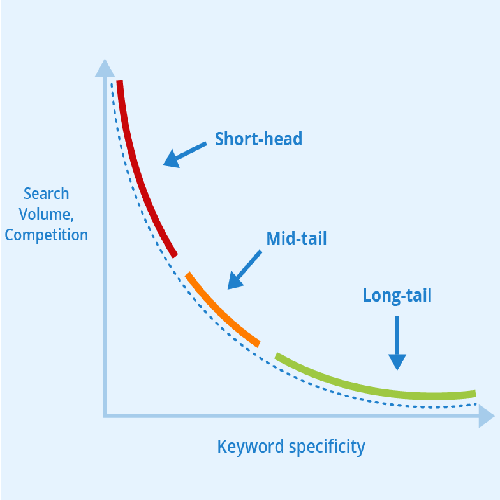Contact Us
Related Posts
Category

We all have used Google Assistant or Siri on our mobile phones. Everyone likes the convenience of using them because you don’t need to type to find something. The assistants can read out the results for you as well. No need to look at the screens!
All thanks to voice search for providing such convenience.
Voice search has revolutionized the way people search for online information. More and more voice search queries are made every day and most of them are from mobile devices. As the popularity of voice search increases, its influence on the Search engine optimization landscape also becomes stronger. For businesses to sustain themselves in the evolving digital space, it is necessary to adapt to the rise of voice search. This post delves into the rising popularity of voice search, its relation to SEO, and how it will impact SEO in the future. We have also mentioned some tips that you can use to capitalize on the power of voice of search for your benefits. So,
Keep reading!
The Rising Popularity of Voice Search
The voice search technology has experienced an exponential growth in the last few years. It has developed more with advancements like artificial intelligence (AI) and natural language processing (NLP).
A report by Juniper Research suggests that there will be about 8.4 billion units of active digital voice assistants by the end of 2024. Such statistics indicate the rising popularity of voice search among users.
There are several reasons behind this;
- Convenience: Voice search is the most convenient option for searching things online. It allows users to perform tasks hand-free while doing other work. It is also faster than typing queries and reading their answers.
- Accurate: Voice search provides more accurate results with the help of AI and NLP. This leads to a better user experience and decreases the hassle of looking for the desired results.
- Natural Interaction: Voice search provides users with a more natural way of interacting with technology. Users feel more comfortable using conversational tones for searching rather than using specific keywords.
Voice Search and SEO: The Relation
Voice search queries are completely different from the traditional ones. Voice search is beyond the use of mere keywords. It also involves understanding the way people communicate to interpret the meaning and context of each query.
People don’t often speak like what they type. So voice searches have a more conversational tone with longer phrases.
It means that SEO strategies must be optimized with the specific tone of voice search to be a part of its results. The content that is meant to rank higher in SERPs with SEO must have a more conversational tone and natural phrases to be in voice search results.
In short, voice search and SEO have an intricate relationship. The results of voice search queries are preferably from those websites and pages that are well-optimized for voice search.
The Impact of Voice Search on SEO
As the popularity of voice search is rising rapidly, its impact on SEO is also increasing. Businesses need to take appropriate steps toward addressing the changes and keeping their SEO strategies aligned with the requirements of voice search.
Here’s how SEO is impacted by voice search:
Long-tail keywords and phrases
Conversational phrases and long-tail keywords are the key aspects of voice search. Queries made with voice search are usually longer and are in a more conversational tone as compared to text-based queries.
With voice search, a user might ask “Which are the five best cities to visit in India?” instead of typing “Five best cities India”. This difference indicates that pages optimized with long-tail keywords and natural conversational phrases are preferred in voice search results.
Actionable tip: Research to find out the common search phrases and questions that are used in voice searches within your industry. Incorporate these keywords and phrases into your content naturally to appear in voice search results.
Local SEO
Local queries, such as “Find a toy shop near me” or “Where is the nearest cafe?”, are more common in voice searches. Voice searches are known to provide more accurate local results as compared to text-based searches.
Thus, local SEO is highly impacted by voice search. Businesses that target local audiences must optimize their SEO strategies accordingly to appear in voice search results and drive traffic
Actionable tip: Optimize your content with local keywords. Create content around local events and affairs. Also, make sure to keep your Google My Business profile updated with all the necessary information a user might ask for.
Optimization for Mobile Usage
Voice search and mobile phones are made for convenience, and they complement each other very well. It is the reason why most voice searches are made on mobile phones.
Optimizing the website and other content for mobile usage is important to grab the voice search audience. Mobile-friendly websites that load quickly and appear engaging improve user experience.
Actionable tip: Enhance the mobile experience of your website by using a simpler yet responsive design, decreasing server response time, and compressing graphics for faster loading. You can use tools like Google’s Mobile-Friendly Test to check your website’s mobile compatibility.
Featured Snippets
Featured snippets are the short answers that appear on the top of search engine page results (SERPs). Voice search assistants often read these snippets as the answer to a query made.
Securing the featured snippet position on result pages directly makes you the first option in voice search results. This improves brand visibility and authority in the target audience.
Actionable tip: Try to claim the featured snippet section on SERPs by creating clear and concise answers to specific questions. Add a FAQ section on your website and use easy-to-understand language with simpler words.
User Intent
Voice search results are focused more on the user intent as compared to the results in text-based search. The user intent is more specific in voice search queries, seeking detailed information.
By understanding the user intent behind voice search queries, you can create specific content that addresses the need for these queries. Also, such content resonates better with the voice search audience.
Actionable tip: Analyze the most common voice search queries made in your industry and identify their intent. It could be navigational, informational, commercial, transactional, or any other. Create content that addresses the queries with the same intent.
Final Thoughts
Voice search has a growing future with an ever-increasing number of users. Its effect on SEO is also profound and it will keep affecting the SEO strategies of businesses. Thus, you must adapt to the needs of voice search to stay competitive and visible.
By understanding the impact of voice search on SEO and implementing our tips in your SEO strategy, you can stay ahead in the voice-first digital era. The more you appear in voice search results, the more your brand image will improve.
So embrace the changes, create the right strategy, and take your business toward success with the power of voice search!



























































































